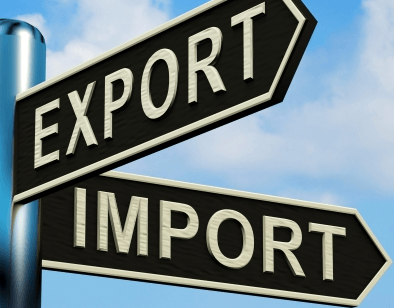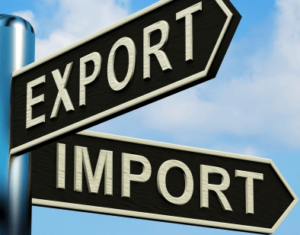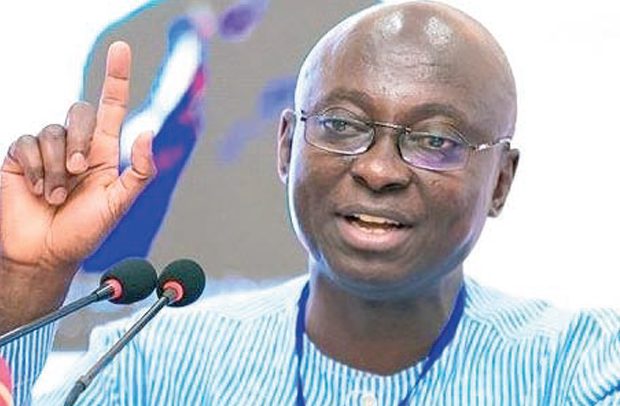

 In the wake of the United States government’s decision to impose a 10% tariff on select imports, including goods from Ghana, the country’s export-oriented industries have been sent reeling. However, well-known Tourism Consultant Dr. Nana Baa Wiredu believes the Ghanaian government needs to collaborate with the private sector to turn this challenge into an opportunity for economic transformation.
In the wake of the United States government’s decision to impose a 10% tariff on select imports, including goods from Ghana, the country’s export-oriented industries have been sent reeling. However, well-known Tourism Consultant Dr. Nana Baa Wiredu believes the Ghanaian government needs to collaborate with the private sector to turn this challenge into an opportunity for economic transformation.
“The U.S. tariffs have undoubtedly posed a significant threat to our export sectors, particularly for products like cocoa, aluminum, and various agricultural commodities. But must be determined to confront this challenge head-on and emerge stronger than ever before,” acknowledged Dr. Wiredu.
Strengthening trade diplomacy and preserving preferential access
According to Dr. Wiredu, the government should look at the need to strengthen its trade diplomacy efforts, both regionally and globally, to preserve Ghana’s preferential access to key markets.
“We should work tirelessly to engage with our partners, both in the U.S. and elsewhere, to find mutually beneficial solutions that protect the interests of Ghanaian exporters. At the same time, we can explore new avenues for market diversification, leveraging the opportunities presented by the African Continental Free Trade Area (AfCFTA),” Dr. Wiredu said.
The AfCFTA, which was launched in 2019, provides a platform for Ghana to expand its trade relationships within the African continent, offsetting the losses from the U.S. tariffs and capitalizing on the growing demand for African products.
“The AfCFTA is a game-changer for us. By actively participating in this continental trade agreement, we can access a market of over 1.3 billion people and forge new, resilient partnerships with our regional neighbours,” the Tourism Consultant emphasized.
Enhancing productivity, quality, and value-Addition
Recognizing the need to enhance the competitiveness of Ghanaian exports, Dr. Wiredu revealed that the government should roll out a series of initiatives to support local enterprises in improving their productivity, product quality, and value-addition capabilities.
“We should be implementing targeted incentive schemes, such as tax breaks and low-interest loans, to encourage our businesses to modernize their operations, adopt innovative technologies, and move up the value chain,” Dr. Wiredu opined.
The goal, he explained, is to ensure that Ghanaian exports can compete not only on price but also on quality and uniqueness, making them more attractive to global buyers even in the face of tariff barriers.
“The focus is on empowering our local producers and manufacturers to enhance their production capabilities and diversify their product offerings. By doing so, we can position Ghana as a reliable, high-quality supplier of a wide range of goods, from cocoa products to value-added agricultural commodities,” the Tourism Consultant said.
Boosting investment promotion and economic diversification
Alongside these efforts, Dr. Wiredu revealed that the Ghanaian government should equally be intensifying its investment promotion strategies to attract foreign direct investment (FDI) in industries less affected by the U.S. tariffs.
“As global supply chains continue to evolve, Ghana should be poised to leverage its strategic location, robust institutions, and favourable business environment to draw the attention of multinational companies seeking a foothold in Africa,” Dr. Wiredu stated.
The Tourism Consultant highlighted the country’s political stability, well-developed infrastructure, and skilled workforce as key assets that can facilitate job creation, technology transfer, and the diversification of Ghana’s economic base.
“By diversifying our economy and attracting new investments, we can reduce our reliance on traditional, tariff-vulnerable sectors and build a more resilient, future-oriented economic model,” he explained.
Leveraging Ghana’s tourism potential
In addition to the strategies targeting exports, Dr. Wiredu emphasized the need to strengthen Ghana’s tourism sector as a means of generating much-needed foreign exchange and creating employment opportunities for the local population.
“Ghana’s rich cultural heritage, stunning natural landscapes, and improved infrastructure provide a unique opportunity for the country to position itself as a premier tourist destination, not only in Africa but globally,” the Tourism Consultant noted.
Dr. Wiredu reiterated his earlier calls for a comprehensive national tourism strategy that can help the country capitalize on these assets and attract more visitors to Ghana.
“By developing high-quality tourism infrastructure, promoting our cultural treasures, and creating seamless visitor experiences, we can diversify our economic base and reduce our reliance on traditional, tariff-vulnerable sectors,” he explained.
As Ghana navigates the challenges posed by the U.S. tariffs, Dr. Wiredu expressed confidence in the government’s strategic approach, anchored in trade diplomacy, productivity enhancement, investment promotion, and tourism development.
“We did not choose this challenge, but we will choose our response,” the Tourism Consultant concluded. “By working together with a shared sense of purpose, Ghana will emerge from this setback stronger, more competitive, and better positioned to shape its own economic destiny.”
By Innocent Samuel Appiah
The post Ghana must have strategic response to US tariffs appeared first on Ghana Business News.
Read Full Story










![‘I’m a Supplier’- Interdicted police officer admits selling opioids to youth [Video]](https://sportal365images.com/process/smp-images-production/pulse.com.gh/05052025/fc3b0efb-cfe0-47e6-9110-1dafcd7a834d.png)







Facebook
Twitter
Pinterest
Instagram
Google+
YouTube
LinkedIn
RSS